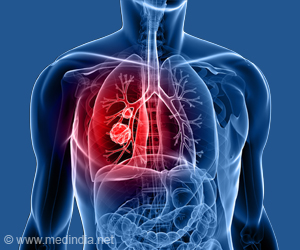Red meat increases risk of breast cancer but high intake of grilled/barbecued and smoked meat may increase mortality after breast cancer.

- Polycyclic aromatic hydrocarbon (PAH) carcinogens, may increase the risk of incident breast cancer.
- Meat cooked at high temperature generates PAH and other carcinogenic chemicals.
- Breast cancer - specific mortality was decreased among women with any pre- and postdiagnosis intake of smoked poultry/fish.
High-temperature cooked meat intake is a highly prevalent source of polycyclic aromatic hydrocarbons and other carcinogenic chemicals and has been associated with breast cancer incidence, but this study assessed whether intake is related to survival after breast cancer.
The findings show that compared with low intake, high intake of grilled/barbecued and smoked meat prior to diagnosis was associated with a 23% increased hazard of all-cause mortality.
After a median duration of follow-up of 17.6 years, among the 1508 case women, 597 deaths were identified, 237 (39.7%) of which were related to breast cancer.
High vs low intake of smoked beef/lamb/pork intake was associated with a 17% increased hazard of all-cause and a 23% increased hazard of breast cancer-specific mortality.
The increase in risk of death from any cause was similar in magnitude among women who reported high prediagnosis and low postdiagnosis intake of grilled/barbecued and smoked meat.
Reference
- Humberto Parada, Grilled, Barbecued, and Smoked Meat Intake and Survival Following Breast Cancer, Journal of the National Cancer Institute (2017) doi: 10.1093/jnci/djw299.
Source-Medindia















